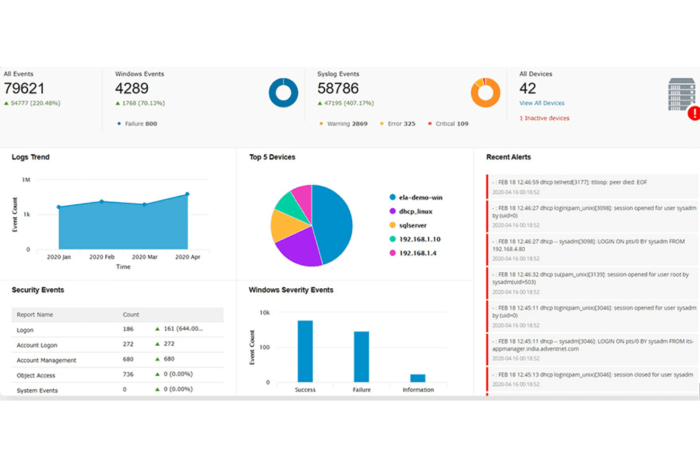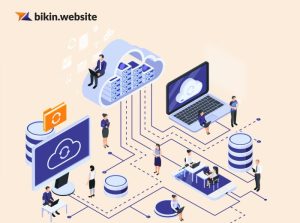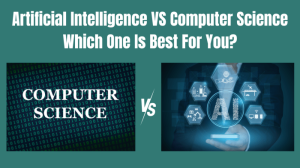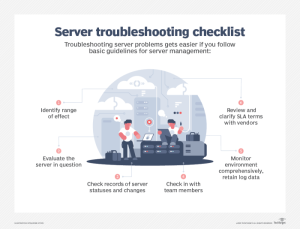
Step into the future of computer security with Best computer security software 2025! Get ready to explore the latest advancements, challenges, and innovative solutions that will shape the digital landscape.
From mobile computing to cutting-edge technologies, this comprehensive guide will keep you informed and entertained every step of the way.
Mobile Computing

Mobile devices play a crucial role in the future of computer security software, as they have become an integral part of our daily lives. With the increasing reliance on smartphones and tablets for various tasks, the need for robust security solutions to protect sensitive data has never been more critical.Mobile computing has a significant impact on the development of security solutions, as it introduces new challenges and vulnerabilities that must be addressed.
The mobility of these devices makes them more susceptible to theft, loss, and unauthorized access, highlighting the importance of implementing strong security measures to safeguard information.
Key Challenges in Securing Mobile Devices by 2025
- Rise of Mobile Malware: As mobile devices become more sophisticated, cybercriminals are increasingly targeting them with malware designed to steal personal information or disrupt operations.
- BYOD Policies: The Bring Your Own Device (BYOD) trend in workplaces poses a challenge for security professionals, as they must find a balance between convenience and security when employees use personal devices for work purposes.
- Data Privacy Concerns: With the amount of sensitive data stored on mobile devices, ensuring data privacy and compliance with regulations such as GDPR becomes a top priority for organizations.
- Weak Authentication Methods: Many mobile devices still rely on traditional passwords or PINs for authentication, which can be easily compromised. Implementing stronger authentication measures, such as biometrics or two-factor authentication, is essential for enhancing security.
- Securing IoT Devices: The proliferation of Internet of Things (IoT) devices connected to mobile networks introduces additional security risks, as these devices may lack proper security protocols and could be exploited by attackers to gain access to the network.
Computers Security
In today’s digital age, computer security is more crucial than ever to protect sensitive information from cyber threats. As technology continues to advance, the landscape of security threats is constantly evolving, making it essential to stay ahead of potential risks.
Comparison of Current and Anticipated Security Threats
- Current threats: Malware, phishing attacks, ransomware, and data breaches are prevalent security risks faced by individuals and organizations.
- Anticipated threats in 2025: With the increasing interconnectedness of devices through the Internet of Things (IoT) and the rise of artificial intelligence (AI), future threats may involve more sophisticated cyber-attacks targeting smart devices and AI-powered systems.
- Importance of proactive security measures: It is crucial to implement robust security protocols and regularly update software to mitigate the risks posed by evolving threats.
Importance of Encryption in Computer Security
Encryption plays a vital role in safeguarding data from unauthorized access by converting information into a coded format that can only be deciphered with the appropriate encryption key. It helps protect sensitive data during transmission and storage, ensuring confidentiality and integrity.
Evolution of Security Measures for Protecting Data
- Multi-factor authentication (MFA): MFA adds an extra layer of security by requiring users to provide multiple forms of verification, such as passwords, biometrics, or security tokens.
- Zero-trust security model: This model assumes that threats can come from both internal and external sources, requiring continuous verification of user identities and strict access controls.
- Artificial intelligence and machine learning: AI-powered security solutions can analyze vast amounts of data to detect anomalies and potential threats in real-time, enhancing threat detection and response capabilities.
- Blockchain technology: Blockchain offers decentralized and tamper-proof storage of data, making it resistant to unauthorized modifications and enhancing data integrity.
Computers Software
In the realm of computer security software, advancements have been rapidly evolving to keep up with the ever-changing landscape of cyber threats. By 2025, we can expect to see a significant enhancement in security software capabilities to combat the sophisticated techniques employed by cybercriminals.
Integration of AI and Machine Learning in Security Software
With the rise of artificial intelligence and machine learning technologies, security software is becoming more adept at detecting and preventing cyber threats in real-time. These technologies enable security software to analyze vast amounts of data, identify patterns, and predict potential security breaches before they occur. By 2025, we can anticipate a more proactive approach to cybersecurity, thanks to the integration of AI and machine learning in security software.
- AI-driven threat detection: Security software will leverage AI algorithms to detect and respond to threats more efficiently, reducing false positives and improving overall detection rates.
- Behavioral analysis: Machine learning algorithms will be employed to analyze user behavior and identify anomalies that may indicate a security breach, allowing for timely intervention.
- Automated response: Security software will be equipped with automated response mechanisms powered by AI, enabling swift action against cyber threats without human intervention.
Importance of Regular Software Updates for Security Purposes
Regular software updates play a crucial role in enhancing the security of computer systems. By 2025, the importance of keeping security software up to date will be more critical than ever to stay ahead of emerging threats and vulnerabilities.
- Patch management: Software updates often include security patches that address known vulnerabilities in the system, reducing the risk of exploitation by cyber attackers.
- Feature enhancements: Updates may also include new security features and functionalities that strengthen the overall security posture of the system, providing an added layer of protection.
- Compliance requirements: Regular software updates help organizations comply with industry regulations and standards that mandate timely security updates to safeguard sensitive data and prevent breaches.
Computers Systems
In today’s technological landscape, computer systems play a crucial role in our daily lives. With the advancement of technology, it is essential to stay updated on the latest trends and developments in computer security systems to protect our data and information.
Impact of IoT on Computer Security Systems
IoT (Internet of Things) has revolutionized the way we interact with technology, connecting various devices and systems to the internet. While it offers convenience and efficiency, it also poses significant security risks to computer systems. The interconnected nature of IoT devices makes them vulnerable to cyber attacks, leading to potential breaches in security. It is imperative for computer security systems to adapt and evolve to address these new challenges posed by IoT.
Trends in Cloud-Based Security Systems
Cloud-based security systems have become increasingly popular due to their flexibility, scalability, and cost-effectiveness. Organizations are leveraging the power of the cloud to secure their data and networks, allowing for centralized management and real-time monitoring. The trend towards cloud-based security systems is expected to continue to grow as more businesses transition to remote work environments and require robust security solutions to protect their assets.
Biometric Authentication in Computer Security Systems
Biometric authentication is a cutting-edge technology that offers a secure and convenient way to verify a user’s identity. By using unique biological traits such as fingerprints, facial recognition, or iris scans, biometric authentication enhances the security of computer systems by providing an additional layer of protection beyond traditional passwords. As cyber threats continue to evolve, biometric authentication is becoming increasingly essential in safeguarding sensitive information and preventing unauthorized access to computer systems.
Computers Technology

Blockchain Technology in Enhancing Computer Security:Blockchain technology plays a crucial role in enhancing computer security by providing a decentralized and tamper-proof system for data storage and transactions. The use of blockchain can help prevent unauthorized access, data manipulation, and ensure the integrity and confidentiality of information.
Zero-Trust Security Models
- Zero-trust security models operate on the principle of not trusting any entity inside or outside the network perimeter.
- Access is granted based on strict verification and authentication protocols, regardless of the user’s location or network.
- By assuming that threats exist both inside and outside the network, zero-trust models help organizations prevent data breaches and cyberattacks.
Emerging Technologies Revolutionizing Computer Security by 2025
- AI-Powered Security Solutions: Artificial intelligence and machine learning algorithms will be increasingly utilized to detect and respond to cyber threats in real-time.
- Quantum Cryptography: Quantum cryptography offers unhackable encryption methods that leverage quantum mechanics to secure data transmissions.
- Homomorphic Encryption: This emerging technology allows computations to be performed on encrypted data without decrypting it, enhancing data privacy and security.
- Secure Access Service Edge (SASE): SASE combines network security functions with wide-area networking capabilities to provide cloud-based security solutions.
Computers Gadgets
Wearable gadgets, smart home devices, and IoT gadgets are revolutionizing the way we interact with technology, but they also bring new challenges to computer security measures.
Wearable Gadgets
Wearable gadgets such as smartwatches and fitness trackers are becoming increasingly popular, but they also pose a potential security risk. These devices collect personal data like health information, location data, and even payment details, making them attractive targets for cybercriminals. It’s essential to ensure these gadgets have strong encryption and authentication measures in place to protect user data from unauthorized access.
Smart Home Devices
Smart home devices like cameras, door locks, and thermostats offer convenience and automation, but they also raise concerns about privacy and security. Hackers could exploit vulnerabilities in these devices to gain access to your home network, compromising sensitive information or even gaining physical access to your home. Implementing strong password practices, keeping devices updated with the latest security patches, and segmenting your network can help mitigate these risks.
IoT Gadgets
The Internet of Things (IoT) is a network of interconnected devices that communicate and share data with each other. While IoT gadgets offer incredible convenience and efficiency, they also introduce new security challenges. With a vast number of devices connected to the internet, each one becomes a potential entry point for cyberattacks. Securing IoT gadgets requires a multi-layered approach, including device authentication, data encryption, and continuous monitoring for unusual activity.
As IoT gadgets continue to proliferate, the future of computer security will be closely intertwined with the security of these interconnected devices.
Conclusion
Get ahead of the curve and stay protected with the best computer security software of 2025. Embrace the future with confidence and peace of mind knowing your devices are secure in this ever-evolving digital world.
General Inquiries
How will mobile devices impact computer security software in 2025?
Mobile devices will play a crucial role in shaping the future of security software by demanding more robust solutions to protect sensitive data.
Why is encryption important for computer security?
Encryption ensures that data remains secure and unreadable to unauthorized users, adding an extra layer of protection against cyber threats.
What are some emerging technologies that will revolutionize computer security by 2025?
Technologies like blockchain and zero-trust security models are expected to transform the landscape of computer security, offering more secure and resilient solutions.





